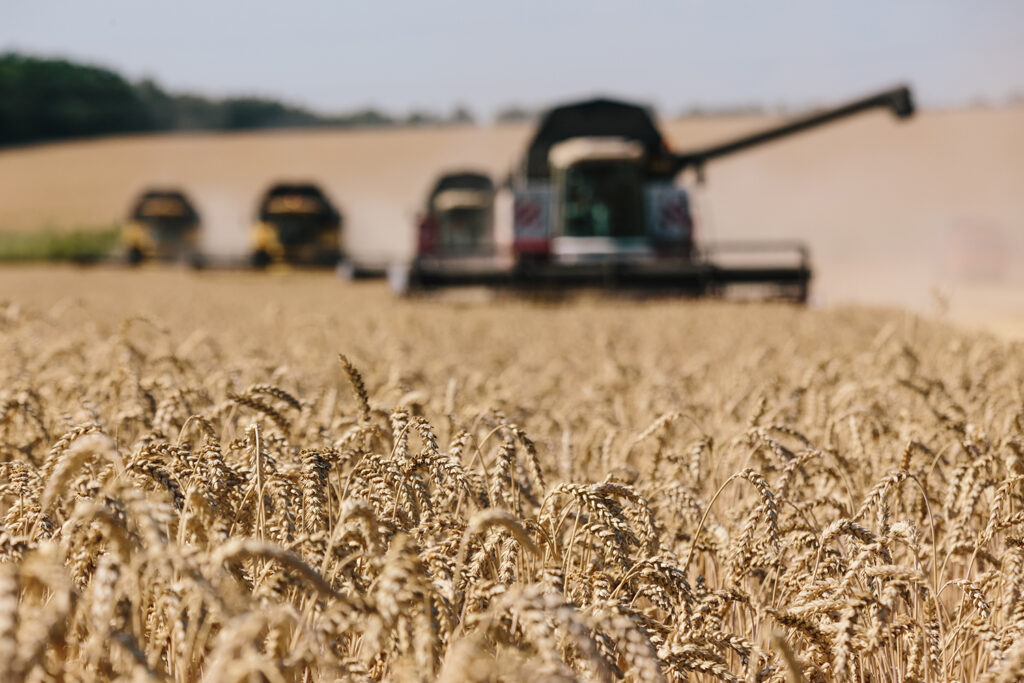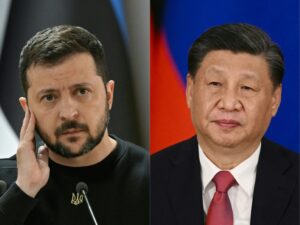
Russia's invasion of Ukraine disrupts global wheat market, raises hunger fears
Russian invasion of Ukraine’s agricultural power has greatly disrupted the global wheat market, encouraging warnings that conflicts can cause hunger in several countries.Wheat is ground into flour to make a large amount of food, from bread to pasta to dessert.
Everyone eats wheat, but not everyone is able to produce it,” said Bruno Parmentedier, an economist and author of the book “Feeding Humanity”.
China is the world’s top producer but is also the main importer of commodities to feed 1.4 billion people.Russia, the United States, Australia, Canada, and Ukraine are the world’s top exporters.Egypt, Indonesia, Nigeria and Turkey are among the top importers.
The price of seeds was high before Russia began the Ukraine invasion in February.
There are several factors behind the increase: the energy price soared when the economy rose again from the locking Covid-19, sending costs for nitrogen-based fertilizer.
The end of the restriction also causes a large disturbance in the global supply chain because demand has soared to all types of products.
The price of wheat jumped higher after Russian troops invaded Ukraine, exceeding 400 euros ($ 418) per ton in May in the European market, duplicating its level last summer.
Dramatic higher costs for developing countries. More than 30 countries depend on Russia and Ukraine for 30 percent of the needs of their wheat imports, according to the UN Food and Agriculture Organization.
The two countries, which are considered as European bread baskets, contributed 30 percent of the global seed exports before the war.
Their production has increased in recent years, with Russia the top exporter and Ukraine approached third place.
Russian Navy blockade has prevented Ukraine from sending 25 million tons of seeds that are now trapped in agriculture or silo at the port.
While some numbers have been transported by train and roads, exports are still six times smaller than the sea.
Ukraine farmers face a dangerous planting season, with some having to work with critic jackets and rely on specialists to remove mines and other weapons from fields.Ukraine wheat harvest is expected to drop 40 percent this year, said the country’s seed associations.
US Foreign Minister Antony Blinken has labeled the Russian blockade as “extortion”, saying it was a deliberate strategy by Russian President Vladimir Putin to force the whole world “to surrender to him” and impose sanctions on Moscow.
Turkey has pioneered efforts aimed at continuing the delivery of seeds across the Black Sea and said on June 22 that four-way talks with Russia, Ukraine and the United Nations could be held in the coming weeks.
China is not expected to release wheat stock while India has imposed a temporary prohibition after the harvest of heat waves.
Global wheat production is expected to reach nearly 775 million tons in 2022-2023, 4.5 million lower than the previous year, according to the US Agriculture Department.
Reducing production in Ukraine, Australia and Morocco will be “only partly” offset by the increase in Canada, Russia and the United States, the department said.
But the price has fallen in recent weeks because the harvest has begun, the market has prices in the Ukraine conflict and fears of increasing recession that towering, according to experts.







